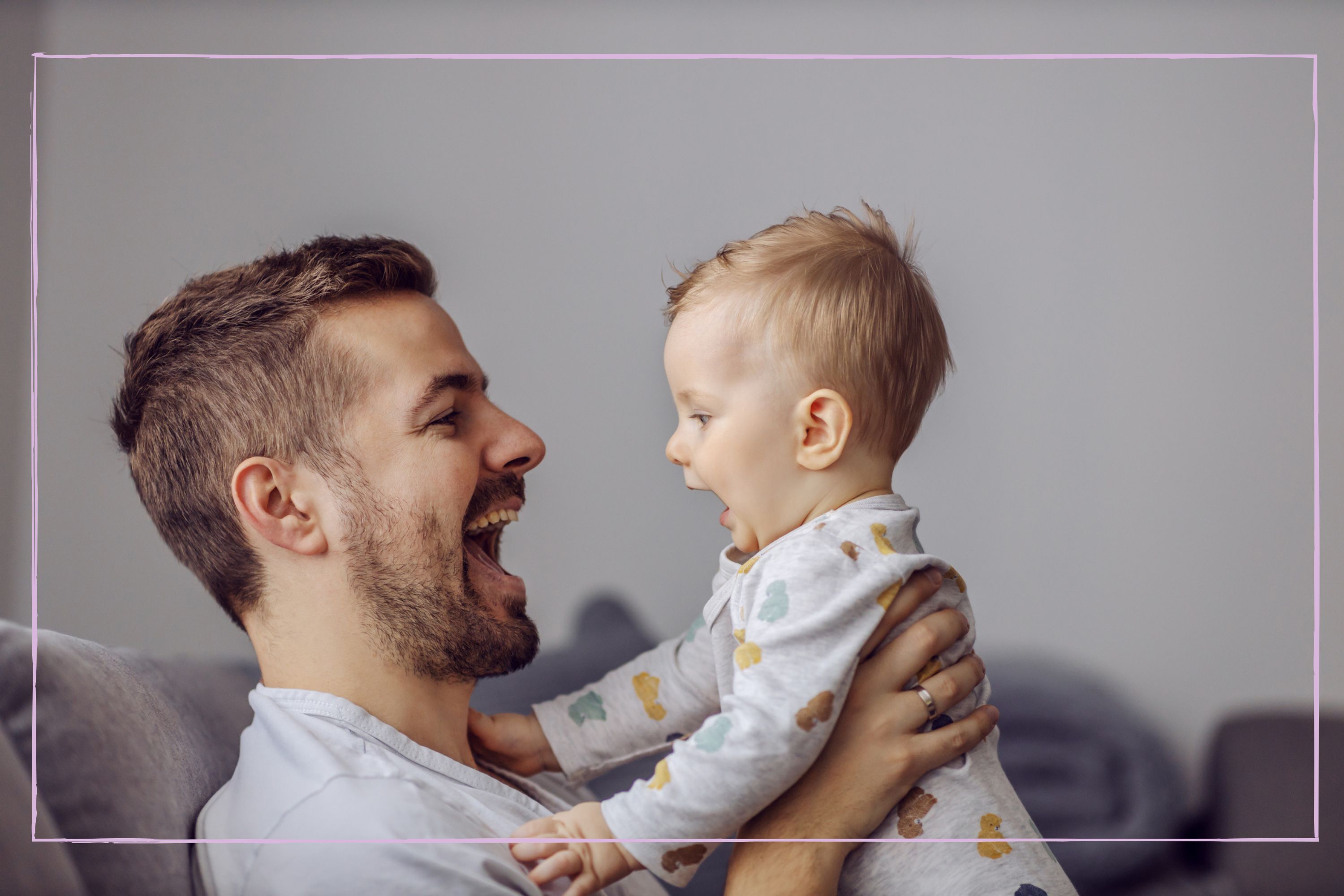Why is Dada usually a baby's first word and why don't mums get the title? Language expert reveals all plus the sweet reason ‘mama’ relates to the mother-child bond
Saying 'dada' first has nothing to do with baby's personal preference


Have you noticed that babies usually say 'dada' first? A language expert explains the reason for this, and the sweet historic reason 'mama' is a universally recognised sound.
You've selected a beautiful sounding baby name for your child, and when they've arrived you wait eagerly for those baby developmental milestones. One of the most exciting of these child development stages, is undoubtedly your baby's first word. For mothers, what can feel a little insulting is when that first word happens to be "dada."
While it might appear this is because they have no appreciation for the fact their mother carried them, fed them and were likely their primary caregiver for the first few months of their lives, saying "dada" first is actually all about linguistics. Writing in Psychology Today, linguistics professor Valerie Fridland explains everything.
The expert describes that sounds including "d," "t," "p" and "b" are referred to as "oral sounds." Meanwhile, "m" is more nasal, as air flows through the nose when it's uttered. Babies have the ability to babble both oral and nasal sounds, but tend to favour oral. Having the "d" sound appear more frequently in their vocabulary, means they'll simply lean more towards "dada" just because it happens to begin with a sound they're more adept at.
GoodtoKnow family editor, Stephanie Lowe, understands just how difficult it is to hear "dada" first. She says "My husband only had 12 days with a newborn Ted and then worked most weekends, so it was just me and my little shadow all day everyday so when he came out with Dada first it stung. I get that it's an easier word to say but still. Ouch."
What linguists have also noted, is a lot of diversity in the way different countries refer to fathers - "dada," "papa" and "tata" are just three of many words describing the male figure in somebody's life. However, "mama" is pretty universal - all derivatives of it sound the same. This isn't accidental, but is related to the mother-child bond.
Why do we say 'mama'?
It's suggested that the mother's role as primary nourisher and nurturer has resulted in the universal nature of the "mama" sound. Noises babies make when they're suckling and feeding are usually "mmmm," as opposed to "ddddd." Because of this, the nasal "m" sound has become largely associated with a mother's role and prevalence of the word in unrelated languages.
Parenting advice, hot topics, best buys and family finance tips delivered straight to your inbox.
There's even ideas that babies make the "mmmm" noise when in need of comfort. In recognising and responding to the sound, the noise has become part and parcel of being the primary caregiver, and is a lovely indicator of the special bond mothers have with their little ones - even if they do say "dada" first.
For more on development, we have information on the three stages of play parents need to know about, and the positive way being unplanned shapes child development. Experts believe lazy parenting could be beneficial for development - we have everything you need to know.

Lucy is a mum-of-two, multi-award nominated writer and blogger with six years’ of experience writing about parenting, family life, and TV. Lucy has contributed content to PopSugar and moms.com. In the last three years, she has transformed her passion for streaming countless hours of television into specialising in entertainment writing. There is now nothing she loves more than watching the best shows on television and sharing why you - and your kids - should watch them.